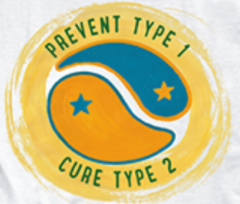By the 1920s, French scientists knew that women who had abnormal amounts of facial hair were also likely to pass sugar in their urine. This combination of problems was called diabète des femmes à barbe, which meant the diabetes of bearded women. Today, we know that the high insulin levels that occur in women with insulin resistance can lead to an imbalance of the sex hormones.
Most people think of insulin as the hormone that controls blood sugar. However, insulin is also a growth hormone. Insulin tells your body to burn or store the sugar that you just ate. It also tells your body to store the fat you just ate, as well as to make new proteins out of the amino acids from the protein you just ate. In other words, insulin is a growth hormone. If you are eating too rich of a diet, your body may start to resist the effects of insulin, to keep you from gaining too much weight. A little bit of insulin resistance is actually normal during a healthy pregnancy. It encourages the body to rely more on fat than on blood sugar for energy between meals. As a result, it helps to keep blood sugar levels a bit high, even when the pregnant woman is fasting. Thus, it helps to ensure that the developing fetus gets a steady supply of glucose (sugar).
Unfortunately, if you gain a lot more weight than your body wants to carry, your insulin resistance can become severe. As a result, your blood sugar can go very high. The result is type 2 diabetes (fat diabetes). In other words, if you have fat diabetes (type 2 diabetes), it means that you are a naturally thin person. Your body is trying to avoid gaining any more weight from your fattening, fatty diet. If your type 2 diabetes is severe, it means that your body is willing to endanger your health and your life to keep you from gaining any more weight.
When you resist the effects of insulin, your blood sugar will be abnormally high. Because your blood sugar is high, your pancreas may produce abnormally large amounts of insulin, to help bring the blood sugar back down. An abnormally large amount of insulin can have other effects on the body. In particular, it can cause a woman’s body to produce too much of the masculine hormones. A healthy woman’s body produces small amounts of the male sex hormones (including testosterone) and large amounts of the female sex hormones (including estrogen). When she becomes insulin-resistant, she may then overproduce the male sex hormones. The symptoms include acne and a masculine distribution of hair (too much on the face and body, and thinning hair on top of the head).
The overload of male sex hormones also causes problems in the ovary. Each month, a young woman’s ovaries normally release a single mature egg cell. Yet in a woman whose sex hormones are disrupted because of high insulin levels, that egg cell might not mature properly and may not be released. In other words, she does not ovulate. As a result, she will not have a menstrual period that month. If this problem continues, she will end up with many tiny cysts (fluid-filled sacs) in her ovaries (polycystic ovary syndrome). Each of these cysts represents an egg follicle that failed to mature and release its egg. Because these women seldom ovulate, it can take a long time for them to become pregnant. Polycystic ovary syndrome is a major cause of infertility in young women in the United States today.
The insulin resistance that leads to polycystic ovary syndrome is caused by overnutrition: too many calories from a fattening, fatty diet. You could solve this problem by simply eating smaller portions of that fattening diet, or by exercising more. However, the best solution is to switch to a low-fat, high-carbohydrate, high-fiber diet. A bulky, starchy diet satisfies the appetite on a reasonable number of calories. Also, the high carbohydrate intake reverses the insulin resistance. The more carbohydrate you eat, the more sensitive your body becomes to insulin. The more fat you eat, the more resistant your body becomes to insulin.
Unfortunately, women with polycystic ovary syndrome are seldom given good dietary advice. The typical advice to eat smaller portions does not work well in the long run because it puts the dieter in conflict with her appetite. Even worse is the advice to restrict carbohydrates. A low-carb diet actually makes insulin resistance worse, unless you manage to lose a lot of weight. Some people do lose weight on low-carb diets, partly because they can no longer eat the foods that are extremely fattening because they contain concentrated fat and concentrated sugar (a combination that is never found in nature). Low-carbohydrate diets can also promote weight loss by suppressing your appetite. (They cause a metabolic state that normally happens only when you are sick or starving.)
When the standard dietary advice fails to help the woman lose weight, she may be given a prescription for a drug called metformin. Metformin is commonly used to treat type 2 diabetes because it reverses insulin resistance. Although metformin could help a woman with polycystic ovary syndrome ovulate and become pregnant, it does not solve her main problem, which is her abnormal metabolism.
It is extremely important for doctors to help a woman become as healthy as possible before she becomes pregnant. If the woman’s insulin resistance is not corrected before she becomes pregnant, she is at risk for gestational diabetes, which is a temporary case of type 2 diabetes during pregnancy. As I mentioned, a little bit of insulin resistance during pregnancy is normal and natural and beneficial. However, gestational diabetes is dangerous for the woman and for her pregnancy. Any pregnancy in a diabetic woman, or in a woman who becomes diabetic during pregnancy, is automatically a high-risk pregnancy.
Like people with type 1 or type 2 diabetes, women with gestational diabetes need to eat a low-fat, high-carbohydrate diet. The goal is to make the woman as sensitive as possible to insulin, and to avoid burdening her blood vessels and kidneys with overloads of fat and protein.


